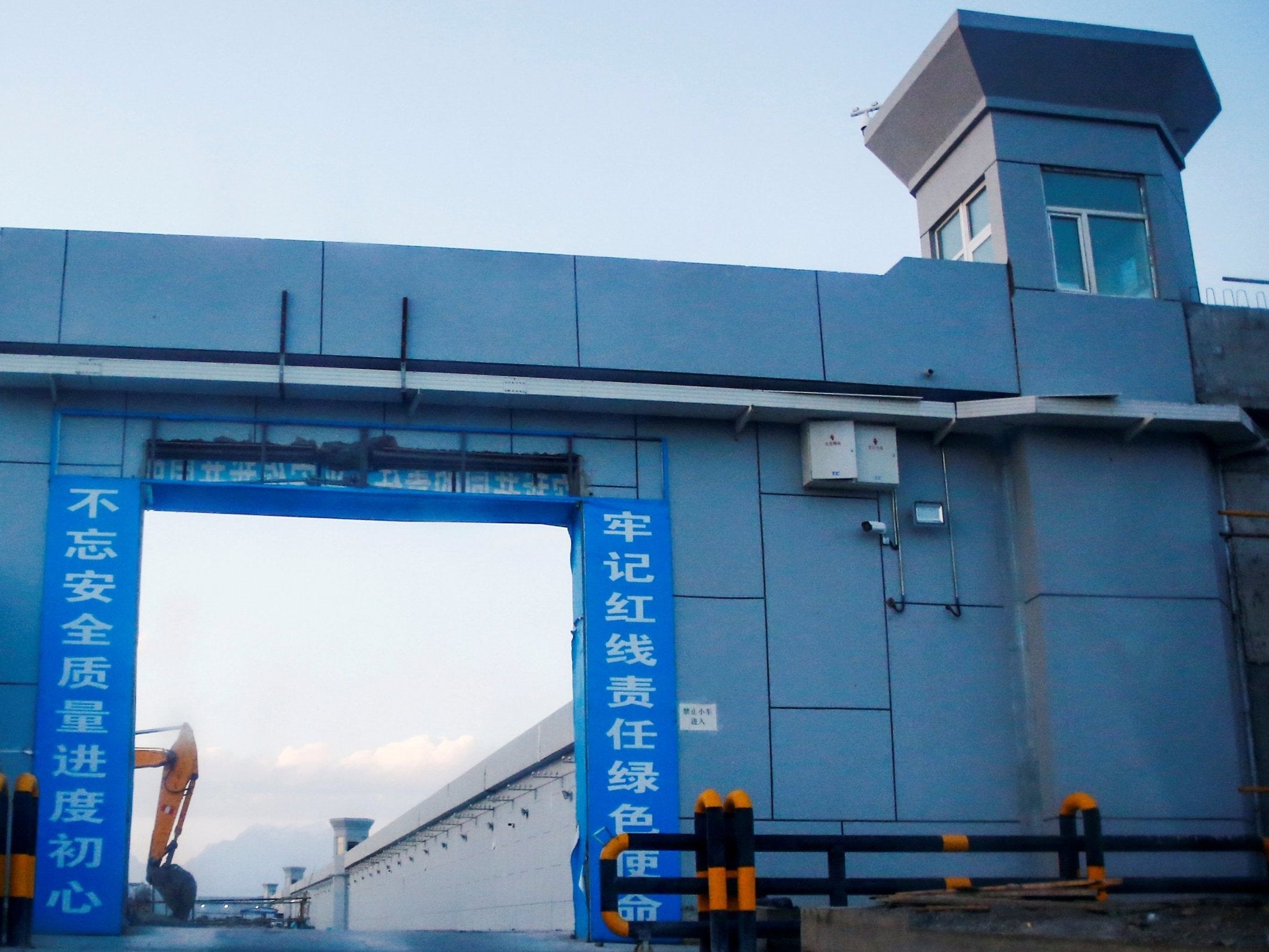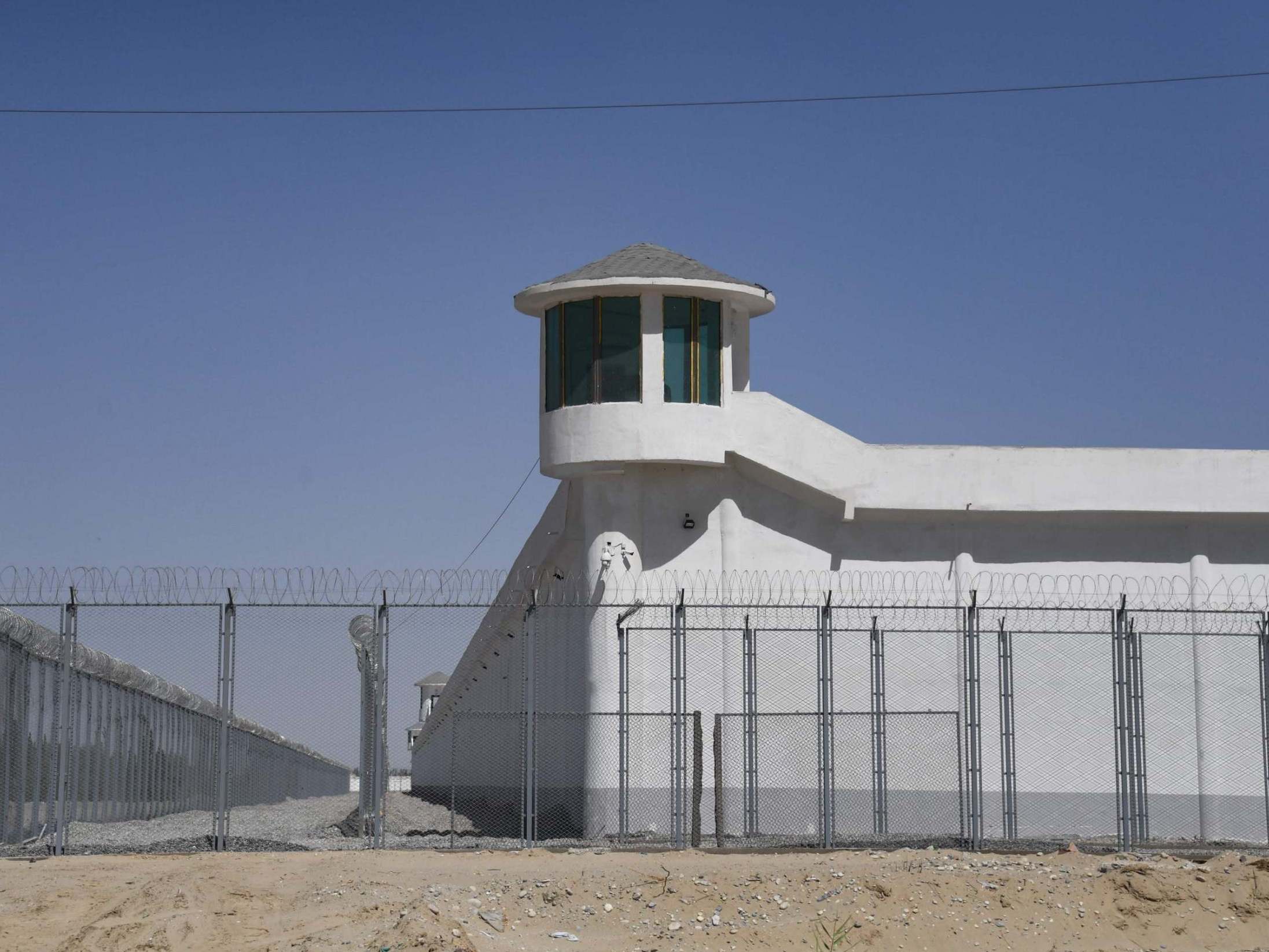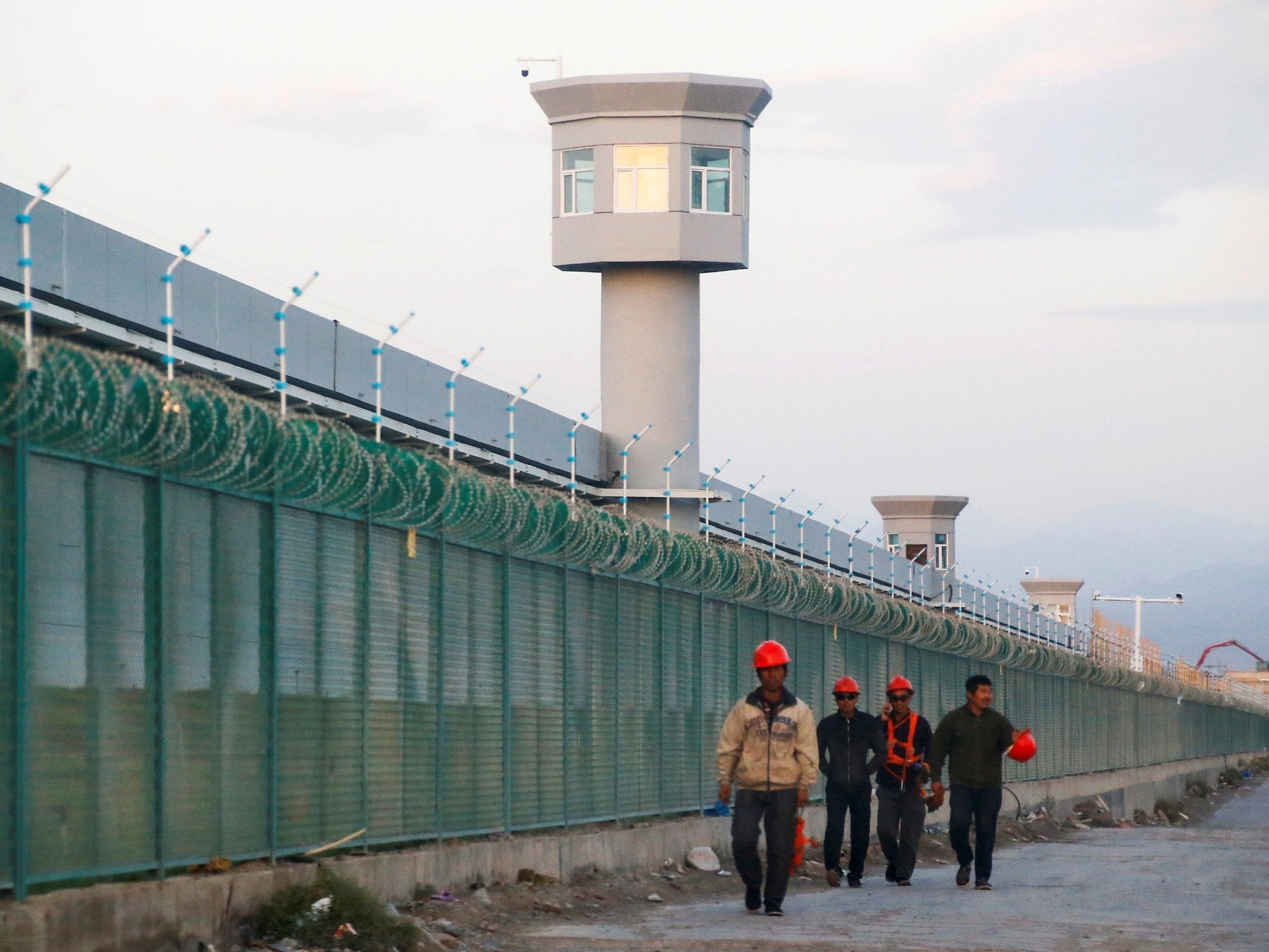China builds more secret ‘re-education camps’ to detain Uighur Muslims despite global outcry over human suffering
Xi Jinping steps up persecution of majority-Muslims in Xinjiang to wipe out political and ethnic threats to his regime

The muscular young Uighur man sat uncomfortably, glancing occasionally at three Chinese officials in the room, as he described his state-mandated salvation in a re-education camp.
The man, Abduweili Kebayir, 25, explained how watching Islamic videos on his phone landed him in one of China’s notorious indoctrination camps for Muslims for eight months — and how he emerged in January as a reformed man.
“Now I know the error of my ways,” he said, as his wife and daughter shuffled nervously around the living room. The room, like the rest of the eerily sparse house where officials who arranged the meeting said he lived, seemed almost staged, decorated with a family portrait, a potted plastic plant and a wall clock that had stopped.
His words at times sounded as rigidly scripted as the government’s propaganda. “Now I know what is right and wrong, and what is legal and illegal,” he said.
In late July, the government said most detainees had been released from the indoctrination camps built to eliminate what it described as the threat of Islamic radicalism and anti-government sentiment among the overwhelmingly Muslim population of Uighurs in the Xinjiang region in China’s northwest.
But reporters from The New York Times found, over seven days of travelling through the region, that the vast network of detention camps erected by the government of China’s authoritarian leader, Xi Jinping, continues to operate and even expand.
These camps, large and small, remain swaddled in heavy security and secrecy, despite the Chinese government’s new pledge of transparency. There are five major ones around Hotan, a city in southern Xinjiang, including the one where Mr Kebayir said he was detained.
Recent satellite images showed that a new detention facility has risen in the desert across the road from his former camp, surrounded by high walls and telltale watchtowers.
Efforts by New York Times reporters to approach the camps, factories and other religious sites were repeatedly blocked by plainclothes security officials — often giving outlandish explanations.
Men claiming to be construction workers pulled power cables across the road near the camp where Mr Kebayir was held and said the scene was too dangerous for anyone to pass. When the reporters were later some distance away, the road promptly reopened.
Since last year, evidence has also pointed to a system of forced labour linked to the camps.
Factories being built nearby provide a place to transfer detainees whom officials consider sufficiently “reformed,” like Mr Kebayir now, while keeping them under government supervision.
Critics say this is simply another form of subjugation.
“I always thought the government was backing itself into a corner with its policies in Xinjiang,” said Sean R. Roberts, a professor at George Washington University who studies the region. “I can’t imagine that the process of backing out of it is going to be very quick at all.”

The communist government’s narrative of redemption through state-enforced “re-education,” despite its dystopian echoes, remains the justification for the camps.
The camps have already swallowed up one million Muslims or more, by most estimates, wrenching them from their families and homes and subjecting them to what activists, relatives of detainees and former detainees describe as stressful, even debilitating, indoctrination.
Detainees, they say, are forced to denounce their religious beliefs and embrace the ideology of the Communist Party.
The establishment of the detention and re-education system — which Secretary of State Mike Pompeo recently called “the stain of the century” — has generated the harshest criticism of China’s record on human rights since the bloody Tiananmen crackdown in 1989.
The government seems more eager to quell international outrage over the camps than to begin to wind down the far-flung system it has built over the past two years.
It remains unapologetically proud of the centres, which were established in a region that experienced a string of deadly attacks up until 2016, especially targeting ethnic Chinese and government buildings.
The chairman of the Xinjiang regional government, Shohrat Zakir, declared that the re-education system was accomplishing its goal of eliminating radicalism and separatism.
Whether the government succeeds in stamping out the threat of terrorism remains to be seen. Authorities in Xinjiang have taken some steps to relax the suffocating surveillance and travel restrictions on Uighurs and others in the region.

Security in major cities in southern Xinjiang has visibly eased somewhat, including in Hotan, Yarkand and Kashgar, all centers of Uighur traditions and resistance to Chinese dominance.
There are fewer checkpoints now, though residents have to pass through scanners with facial-recognition software when they move between cities.
Zakir, the regional chairman, welcomed visitors to the region to see the changes for themselves, but it is clear authorities are not yet prepared to allow unfettered access.
Local officials instead offered to organise visits and interviews that, in some cases, did more to raise questions than to dispel them.
Kebayir’s village, a farming settlement reclaimed out of the desert after 2014 and called Harmony New Village, also has a smaller re-education centre that continues to hold more than 300 local Uighurs, ages 24 to 41, according to Wuergulia Ashim, an official there.
The centre offered a model of how the Chinese government describes the indoctrination camps — a kind of boarding school and training centre that turns local residents into loyal citizens.
Former detainees have disputed this description of these centres, saying that life inside the camps is far harsher and that inmates included professionals and officials who were not in need of job training.
Ashim said “more and more” of the detainees, whom she called students, were “graduating” from the centre. They are confined from Monday morning to Saturday afternoon, when they are allowed to return home briefly.
“Society is increasingly stable, and fewer and fewer people are infected with extremist thought,” she added.
The impeccably neat, six-story building was built in 2017 and has a capacity of 447 people.
Detainees sleep six to room. There is a music room, an art room, a library with books mostly in Chinese, a room to learn how to give manicures and another to learn to cut hair.
There was also a psychological counselling room. “Have a heart-to-heart,” read a sign on the wall. “Your secrets are my responsibility.”

The walls of classrooms were decorated with Communist Party adages and displayed samples of exemplary class work. “I have achieved true happiness because I was born in a country that is prosperous, strong and democratic,” one essay read. “How happy we are!”
Even the carefully choreographed meeting with Mr Kebayir, conducted over an impressive spread of glass dishes bearing bread, fruits and nuts, faltered under questioning.
A seemingly rehearsed monotone slipped when the conversation turned to details of Kebayir’s detention, and one official tried to cut him off. A question about how many detainees were housed with Mr Kebayir, an official said angrily, was a leading one.
By his account, Mr Kebayir was now earning a decent wage — 2,100 yuan last month, about $300 — stitching soles onto leather shoes at one of the new factories. Before he entered the camp, he said, he struggled as a poorly educated farmer, growing corn and walnuts, for which Hotan is famous.

He paused awkwardly when pressed about details of his re-education. He said most of the others there were young men from the countryside, but he did not know any of them personally.
Much of the instruction involved agricultural techniques, he said, but he also learned Chinese, the tenets of the Communist Party and what he called “healthy life habits.” He credited the instructors with dispelling his budding extremist thinking.
“Before I couldn’t even write my own name in Chinese,” he said. “Now I can speak the national language, my thinking is clear, and I have job skills.”
He initially said that he had volunteered to “enroll” but later acknowledged that village officials had picked him because of anti-social behaviour, like watching the Islamic-themed videos and spending time at home alone.
The latter seemed to be contradicted by the fact that he was married and had a daughter, now 2.
“Young people can be extremely vulnerable to extremist ideas,” he said.
It was not even clear that the house where Kebayir was interviewed was actually his. The closet held nothing except for a few dresses, and the refrigerator was empty except for a plate of uncooked dough. There were no toys around for their toddler.
Only hours later, Kebayir and his wife and daughter were no longer at the house and could not be reached, not even through the officials who set up the interview. One of them said Kebayir had business to deal with and had turned off his phone.
New York Times
Join our commenting forum
Join thought-provoking conversations, follow other Independent readers and see their replies
Comments
Bookmark popover
Removed from bookmarks